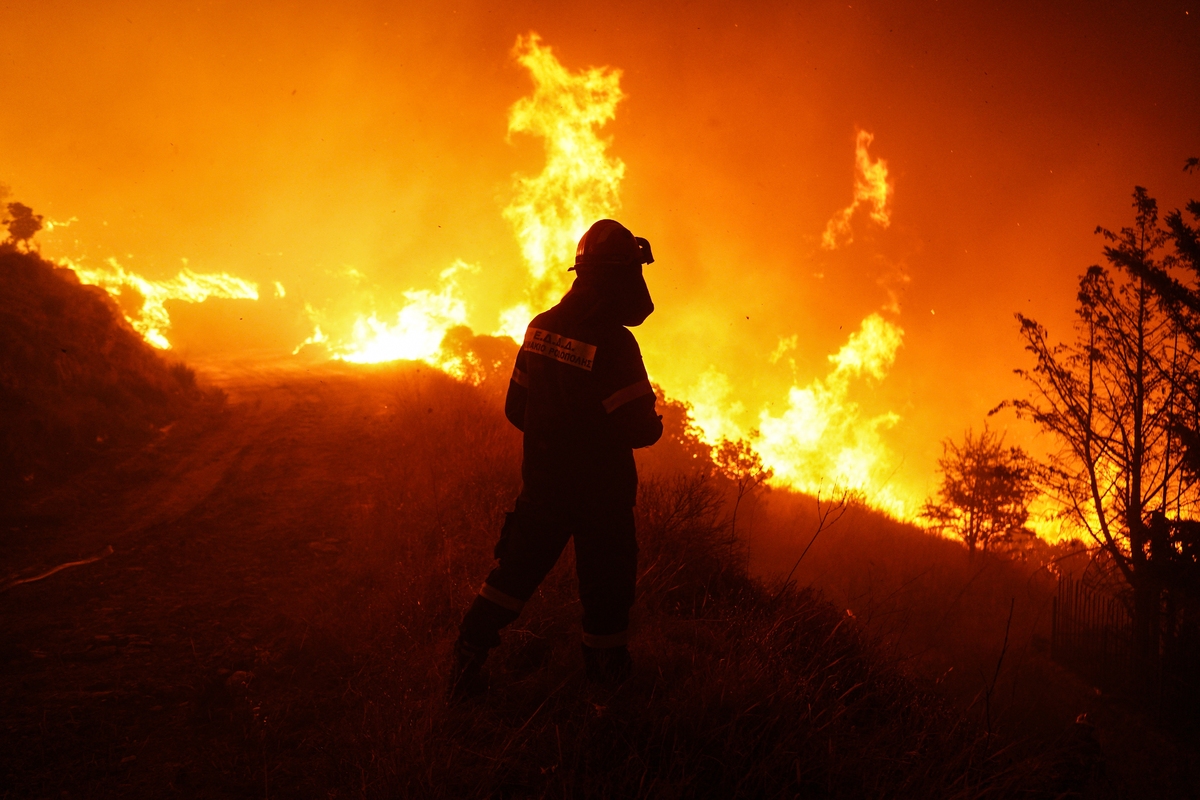The hidden toll: Firefighters’ trauma and the lack of proper protection

Dr. Panagiotis Serdaris, a professor at the University of Western Macedonia specialising in Business Administration Psychology, spoke at a workshop on “Psychology and Firefighting” about the psychological impact of firefighting. “The post-traumatic shock is immense,” Serdaris explained. “Firefighters experience isolation, depression, antisocial behaviour, and continuous nightmares. These effects can appear immediately or lie dormant, surfacing later as the trauma takes hold.”
The physical toll is equally severe. Savva Theodoris, Public Relations Manager of the Panhellenic Union of Retired Firefighters, described the lasting injuries and illnesses that plague firefighters long after their service. “We still toss and turn in our sleep, wake up early with intense stress, and face cancers and depression that often appear years later. High blood pressure, digestive disorders, and respiratory problems are common among us,” he noted.
One of the most well-known cases is that of Christofas Tzanavaris, a firefighter from Mytilini who suffered severe health issues after a 2012 training exercise in Crete. Tzanavaris developed an 80% disability, including coronary disease, myelodysplastic syndrome, respiratory problems, and leukemia, due to poor maintenance of breathing apparatus. Despite a seven-year legal battle, the responsibility for his condition was ultimately attributed to higher levels of management, and the officers involved were acquitted.
Cancer is a significant risk for firefighters, as multiple studies have shown. A 2017 study published in JAMA found that among 2,400 firefighters in South Florida, about 7% had been diagnosed with melanoma, and 3.5% with non-melanoma skin cancers—rates higher than the general population. A 2023 review of five studies confirmed an increased risk of melanoma among professional firefighters compared to non-firefighters, attributing this to exposure to carcinogenic combustion byproducts like polycyclic aromatic hydrocarbons, benzene, and heavy metals.
In the UK, a study commissioned by the Fire Brigades Union and conducted by the University of Central Lancashire found that firefighters have a 1.6 times higher death rate from all cancers compared to the general population. Certain cancers, such as prostate, leukemia, esophageal, and those of unknown origin, have significantly higher mortality rates among firefighters.
Despite these known risks, the protective equipment provided to firefighters is often inadequate. Christos Tsigas, President of the Union of the Fire Brigade of Western Thessaly, highlighted the shortcomings of their gear. “The masks we are given for bushfires are simple FFP2 filters that do not block the harmful chemicals released by smoke. Proper masks with chemical filters exist, but we have to buy them ourselves,” Tsigas said. He also pointed out that the uniforms they wear are expired, losing their protective properties over time, and the boots provided are ill-suited for their work environment.
The lack of proper personal protective equipment (PPE) is a glaring issue. Much of the gear firefighters use is provided through sponsorships rather than by the state. “The Fire Brigade doesn’t supply us with the necessary equipment. The uniforms we currently wear are donated, and even those are past their expiration date,” Tsigas added. The most recent uniforms came from the Stavros Niarchos Foundation, while previous ones were provided by Alpha Bank.
Firefighters are often hailed as heroes, yet they are left exposed, without the essential protections they need. Their profession is not even classified as hazardous, despite the obvious risks. In the absence of adequate state support, firefighters are forced to pay out of pocket for their own safety—security that, under these conditions, no one can truly guarantee.
______________________________________________
Are you seeking news from Greece presented from a progressive, non-mainstream perspective? Subscribe monthly or annually to support TPP International in delivering independent reporting in English. Don’t let Greek progressive voices fade.
Make sure to reference “TPP International” and your order number as the reason for payment.